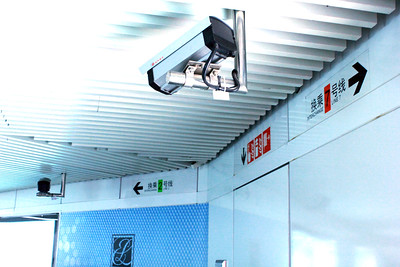 EMERGING TECH
EMERGING TECH
 EMERGING TECH
EMERGING TECH
 EMERGING TECH
EMERGING TECH
The Chinese province of Henan will start using a new surveillance system for journalists, international students and other “suspicious” people, according to a report published by Reuters today.
Reuters, which has seen documents talking about the system, said there will be a “traffic light” classification for those people spotted. A red light classification is the worst, with the documents saying if a journalist is designated red, he or she will be “dealt with accordingly.”
The documents were published in July and were part of a tendering process for which Chinese tech companies could bid to build the system. The contract was apparently won by the information technology giant NeuSoft in September. At the time, NeuSoft said the system could be up and running in two months, so it could be working at this moment.
The system will use facial recognition cameras situated all over the province. When a “person of concern” is picked up by those cameras, the image will then be processed in a larger database of images. Those databases will be connected with China’s national database.
“The preliminary proposal is to classify key concerned journalists into three levels,” the documents stated. “People marked in red are the key concern. The second level, marked in yellow, are people of general concern. Level three, marked in green, are for journalists who aren’t harmful.”
People of concern might show up if they have visited the province on a number of occasions or if they have had been accused of criminal behavior in the past. But the system doesn’t stop at journalists.
Foreign students will also be ranked in the system. The documents say the system will classify “excellent foreign students, general personnel, and key people and unstable personnel.” The ranking will be based on “discipline compliance” at the school as well as the attendance record and exam results. A student of concern will be tracked by looking at data relating to their time in China.
“Suspicious persons must be tailed and controlled, dynamic research analyses and risk assessments made, and the journalists dealt with according to their category,” said the documents, which also mentioned, “stranded women” – female immigrants who are not Chinese.
Unsurprisingly, such a dystopian-sounding system has not been welcomed by free-speech proponents. Human Rights Watch told the BBC, “This is not a government that needs more power to track more people… especially those who might be trying to peacefully hold it accountable.”
THANK YOU